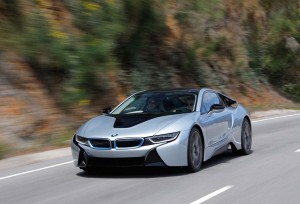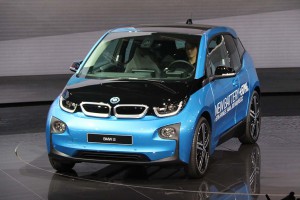Facing pressure from regulators in China and Europe to reduce emissions and to push ahead with the electrification of its product portfolio, BMW expects its research and development budget, when measured as a percentage of sales, to rise in 2018, BMW chief financial officer said in a German newspaper.
“Reducing CO2 emissions, electrifying engines and autonomous driving are the key challenges for our industry over the next years,” BMW CFO Nicolas Peter told Boersen-Zeitung in an interview published on Saturday.
Peter said that R&D spending would account for about 6% of sales this year, up from 5.5% in 2016.
“Next year, too, should see a higher ratio,” Peter said.
(BMW takes heat over vehicle fires. Click Herefor the story.)

BMW is seeking to make sure it meets the requirements for emissions in several nations by expanding its electric vehicle development program.
The comments by the BMW executive reflect the tighter controls being placed on automotive missions in both the EU and China, which are critical to the German carmaker.
BMW also expects sales to grow slightly this year compared with the 86.42 billion euros ($96.82 billion) generated in 2016, suggesting R&D spending of more than 5.19 billion euros in 2017 Peter said.
Carmakers, such as BMW, which has been a supporter of the move to electrify vehicles, have been frustrated by slow pace of efforts to bring down the cost of electric cars, which have failed to gain traction with consumers in part because of their price. At the same time, they are forced to cut the emissions of their fleets and face dwindling demand for diesel cars.
(Click Here to see more about BMW’s biggest product blitz in history.)
Meanwhile, German Chancellor Angela Merkel, in her weekly Saturday podcast, also said it would be desirable for Europe’s biggest economy to produce battery cells for electric cars locally and reduce dependency on Asian suppliers, according to the Reuters news agency.
“And if we are part of the research, also with regard to the prototypes, then I think it improves the outlook of bringing modern production of next-generation cells back to Europe and Germany,” she said.
Last week, Merkel said Germany was likely to miss the government’s target of putting a million electric vehicles (EV) on the roads by the end of the decade, but added that a big breakthrough in demand for battery-powered cars could come very abruptly.
(BMW upping production to 3M units by 2020. Click Here for the story.)
As in the U.S. and even China, which is ultimately expected to be the world’s largest market for electric vehicles, the sale of EVs has remained sluggish in Germany despite discounts introduced last year and granted to buyers of green cars. In 2016, there were less than 80,000 electric cars on German roads.

